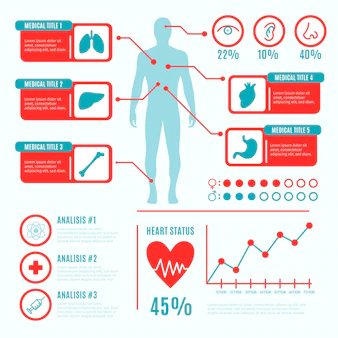Emerging Risk Factors for Heart Disease

While there are well-established risk factors for heart disease, such as high blood pressure and high cholesterol, there are also emerging risk factors that researchers are studying. Here are some of the emerging risk factors for heart disease:
- Sleep apnea: Sleep apnea is a disorder in which breathing is repeatedly interrupted during sleep. It has been linked to an increased risk of high blood pressure, heart disease, and stroke.
- Inflammation: Inflammation is a natural immune response that helps to fight off infections and injuries. However, chronic inflammation can contribute to the development of heart disease.
- Lipoprotein(a): Lipoprotein(a), also known as Lp(a), is a type of cholesterol that can contribute to the development of heart disease. It is not routinely measured in standard cholesterol tests, but some experts believe it should be.
- Chronic kidney disease: Chronic kidney disease is a condition in which the kidneys gradually lose function over time. It has been linked to an increased risk of heart disease.
- Air pollution: Exposure to air pollution, particularly fine particulate matter, has been linked to an increased risk of heart disease.
- Diabetes: Diabetes is a condition in which the body is unable to properly use and store glucose (sugar) from food. It has been linked to an increased risk of heart disease.
- Psychosocial stress: Chronic stress can have negative effects on the body, including an increased risk of heart disease.
While more research is needed to fully understand the impact of these emerging risk factors on heart disease, it’s important to be aware of them and take steps to address them if necessary. This may include making lifestyle changes, such as quitting smoking or improving sleep habits, and working with your healthcare provider to manage any underlying conditions, such as diabetes or sleep apnea.
